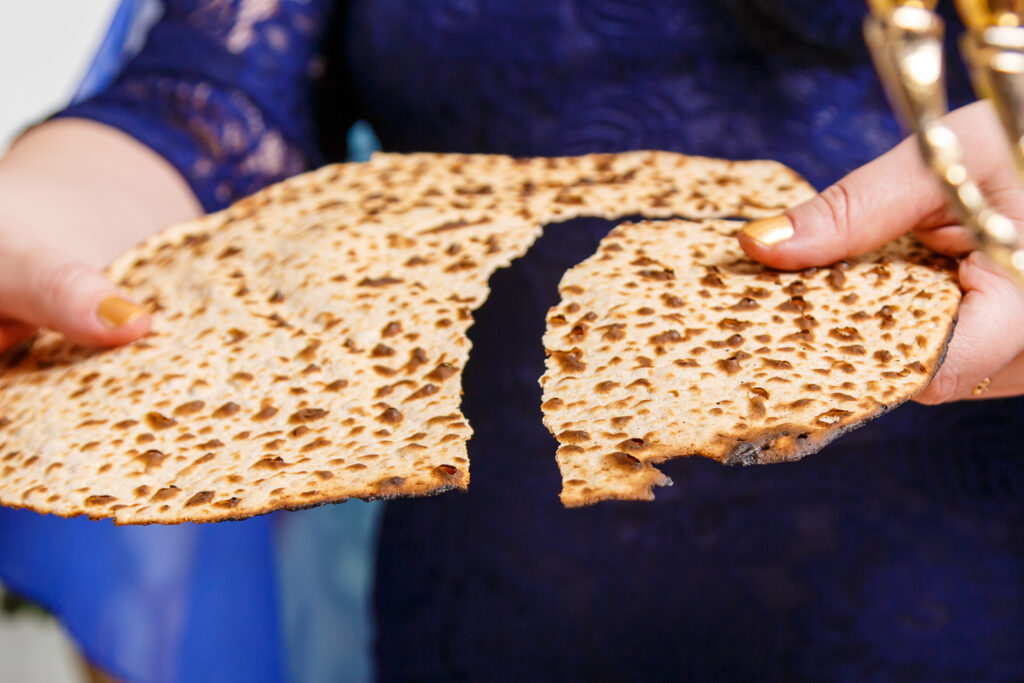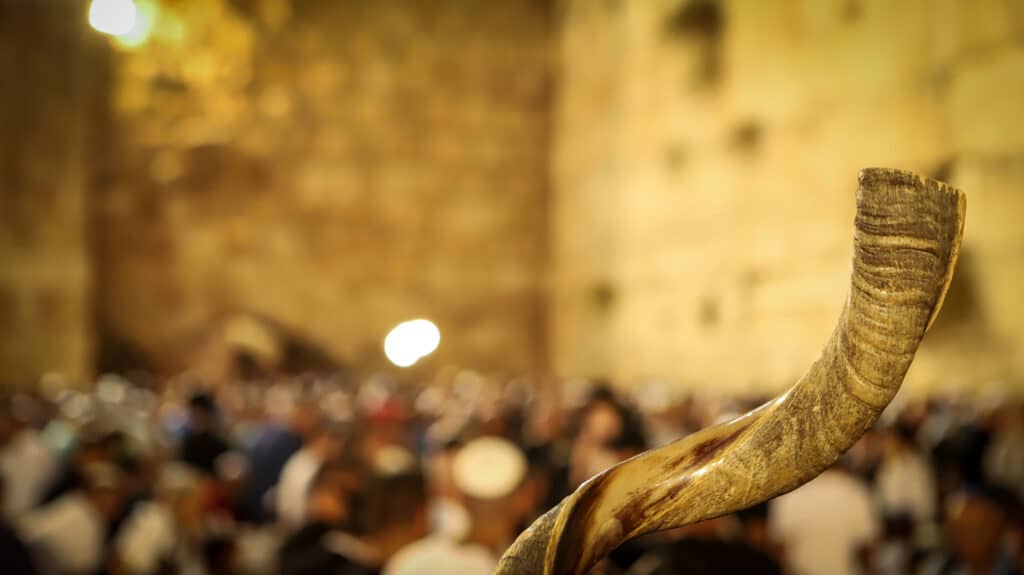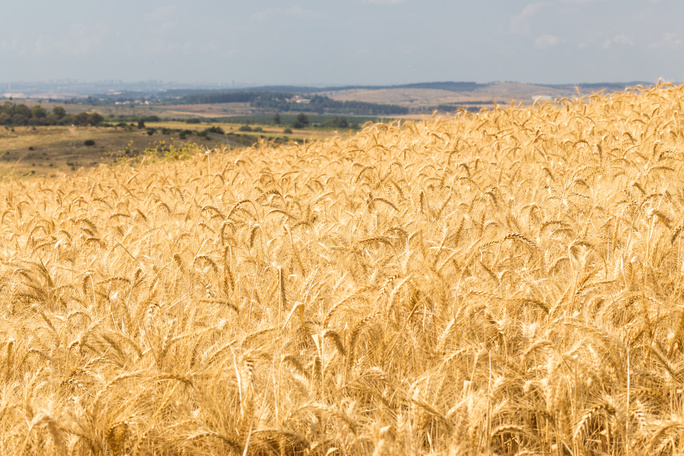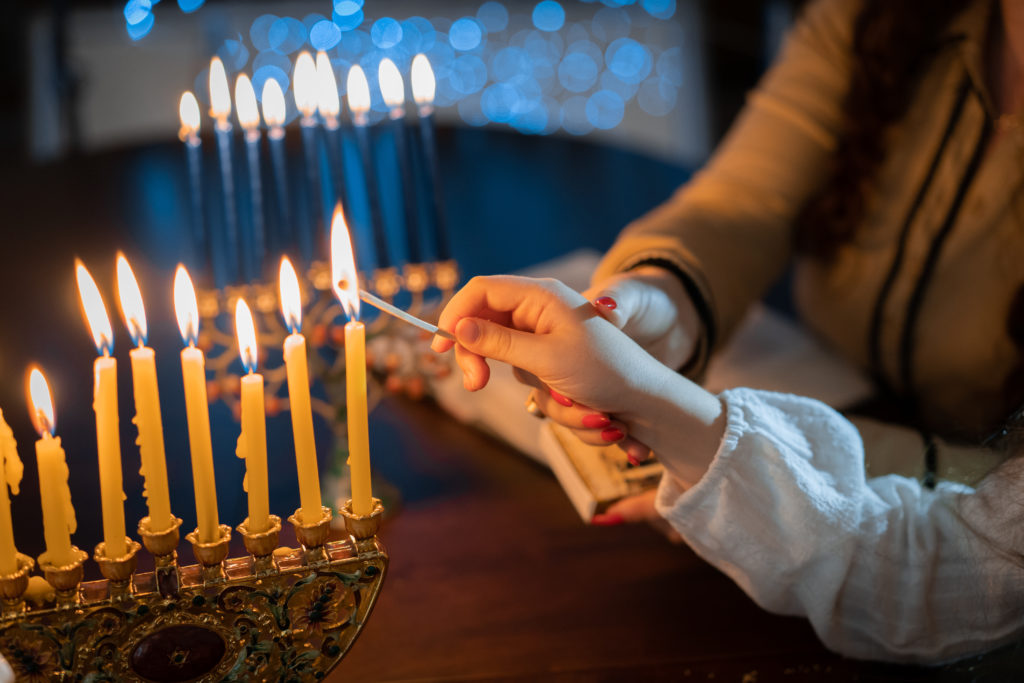Biblical Holidays and Jesus
Did Jesus observe any holidays? If so, what holidays did Jesus celebrate? After all, Jesus was a Jewish man. He must have grown up celebrating Jewish holidays, right?
At first glance, we might think that the Biblical Holidays are just Jewish. After all, Israel is the only country in the world today that turned them into national holidays.
But did you know that all four Gospels and the Book of Acts speak of these “Jewish feasts” in relevant terms? Yes, Jesus and the disciples celebrated holidays described in the Old Testament.
In their day, the Hebrew Scriptures were all they had – that was the Word of God Jesus and later the Apostle Paul spoke of! So, let’s look to the New Testament to see which Biblical Feasts Jesus observed and foreshadowed:
Holidays Jesus Celebrated
1. Jesus Observed Passover and the Feast of Unleavened Bread.
The first holiday we know Jesus celebrated was very easy to recognize, because it is… named. We read in the Gospels that Jesus celebrated Passover already as a child, since His earthly parents were observant Jews (Luke 2:40-43). As an adult, not only did He observe the holiday. He took it very seriously and looked forward to celebrating it with His disciples.
Then came the Day of Unleavened Bread when the Passover must be killed. And He sent Peter and John, saying, “Go and prepare the Passover for us, that we may eat.” (Luke 22:7-8)
When the hour had come, He sat down, and the twelve apostles with Him. Then He said to them, “With fervent desire I have desired to eat this Passover with you before I suffer… (Luke 22:14-15)
The verses above describe Jesus’ last Passover meal. Today, we refer to it as His Last Supper.

2. The Messiah Fulfilled the Feast of First Fruits.
The idea of firstfruits (or first fruits) is common in many cultures and religions. But only the God of Israel turned it from sacrifice to a gift. Firstfruits are the first of the crops that we give to God as our sacrifice.
Biblically, the Feast of First Fruits was observed on the first day after the Sabbath at Passover. Do you remember what else happened on the first day after the Sabbath?
Now after the Sabbath, as the first day of the week began to dawn… there was a great earthquake; for an angel of the Lord descended from heaven and came and rolled back the stone…
[The angel answered the women] “He is not here; for He is risen.” (Matt. 28:1-2,6)
It would be a stretch to say that “Jesus celebrated First Fruits”, but one thing is undeniable. He gave it meaning. He was the Firstfruits of resurrection, as reiterated by the apostle Paul:
For as in Adam all die, so in Christ all will be made alive. But each in turn: Christ, the firstfruits; then when He comes, those who belong to Him. (1 Corinthians 15:22-23)
3. Jesus Pointed to Shavuot (Pentecost).
We do not find a direct mention of Shavuot (Feast of Weeks which is also called Pentecost) in the Gospels. Nevertheless, it is safe to assume that Jesus knew and observed the holiday just as His parents did and priests in Jerusalem taught.
After His death and resurrection, Jesus instructs His disciples to wait in Jerusalem for the promise of the Father (Acts 1:4). What was the promise? Jesus knew that the Father would pour the Holy Spirit out on His followers on the Feast of Shavuot:
When the Day of Pentecost had fully come, they were all with one accord in one place. And suddenly there came a sound from heaven, as of a rushing mighty wind, and it filled the whole house where they were sitting. Then there appeared to them divided tongues, as of fire, and one sat upon each of them. And they were all filled with the Holy Spirit… (Acts 2:1-4a)

4. Yeshua Foreshadowed the Feast of Trumpets.
The Old Testament foretold a great day of the Lord that will be announced by the blast of trumpets. Jesus also spoke of that day, when He talked to His disciples on the Mount of Olives about the end of days:
Then the sign of the Son of Man will appear in heaven, and then all the tribes of the earth will mourn, and they will see the Son of Man coming on the clouds of heaven with power and great glory. And He will send His angels with a great sound of a trumpet, and they will gather together His elect from the four winds, from one end of heaven to the other. (Matt. 24:30-31)
Aside from the fact that this must have been an overwhelming revelation to the disciples, in some way it must have also encouraged them. After all, Jesus said the Son of Man will come on the clouds. He often referred to Himself with that title and His faithful followers were very familiar with it.
This will be an awesome day. A great trumpet blast announces the Feast of Trumpets. It is also mentioned in Paul’s letter to Corinthians (1 Cor 15:52), Thessalonians (1 Thes 4:16) and in the Book of Revelation (Rev 1:9).
5. Son of God Fulfilled the Day of Atonement (Yom Kippur).
Before we get into the idea of fulfillment, we need to examine the word ‘atone’ – ‘kapar’ in Hebrew. You may have already learned that the English word ‘atone’ or ‘atonement’ does not appear in the New Testament. Why is that?
First century Jews must have been well acquainted with this term, or rather, this deed, no? The Day of Atonement has been around since the days of Israel wandering in the wilderness. Of course.
But the problem may lay in the fact that the Old Testament was written in Hebrew and the New Testament in Greek. Do these two languages not have perfectly compatible equivalents of every word? Maybe. But in this case, we may find the Hebrew translation of the Greek New Testament helpful! Read these words of Jesus:
For even the Son of Man did not come to be served, but to serve, and to give His life a ransom for many. (Mark 10:45)
Although the Greek word may have been translated into the English word ‘ransom’, in the Hebrew translation we will find – you guessed it – ‘kapar’! In other words, we could also read this verse like this: the Son of Man (already a familiar term) came to give His life an atonement for many. The shed blood of Jesus atoned for our sins and justified us once and for all.
6. Jesus Observed the Feast of Tabernacles (Sukkot).
After some discussion with His disciples about attending the Feast of Tabernacles, all of them went up to Jerusalem. But separately (John 7:1–10).
At this point in Jesus’ ministry, many Jewish people already heard about Him. Some welcomed His teachings, some were skeptical, and others were openly opposed. Jesus knew that attending Sukkot in Jerusalem would cause a stir. And, as He told His followers that day, His time had not yet come.
Once He reached the Temple Mount, Jesus taught the people about the Kingdom of God. And on the last day of the feast, called Hoshana Raba (the Great Salvation), the words of Jesus resonated with all who gathered. It was the day of Water Pouring Ceremony, when priests poured water over the altar crying to God for salvation.
On the last day, that great day of the feast, Jesus stood and cried out, saying, “If anyone thirsts, let him come to Me and drink. He who believes in Me, as the Scripture has said, out of his heart will flow rivers of living water.” (John 7:37-38)
7. Did Jesus Celebrate the holiday of Hanukkah?
Even though Hanukkah was not specifically ordained in the Torah (Books of Moses), Jesus did not ignore it. Quite the opposite – He came specifically to Jerusalem, even though none of the Old Testament prophets instructed Israelites to do so.
We may know Hanukkah by its modern name, Festival of Lights, but the apostle John refers to it as the Feast of Dedication. Why? After the Temple was desecrated by the Greeks, the Maccabees restored it and once again dedicated it to the one true God.
Now it was the Feast of Dedication in Jerusalem, and it was winter. And Jesus walked in the temple, in Solomon’s porch. (John 10:22-23)
The Feast of Dedication was all about the Jerusalem Temple and worshipping the Father. And Jesus was there for it.
8. Finally, the Messiah Kept the Sabbath.
If you ask Christians about Jesus’ attitude towards the Sabbath, they will most likely quote His famous words:
“The Sabbath was made for man, and not man for the Sabbath. Therefore the Son of Man is also Lord of the Sabbath.” (Mark 2:27, 28)
The message is simple. When God created Adam and Eve, He didn’t do so for the sake of the Seventh Day. That would be absurd. But the Creator did establish the seventh day to be a day of rest. He created it for the man and the woman – to spend this day with Him! Man and God kept the very first Sabbath by having fellowship with one another.
But the apostle Mark (and others) mention many other Sabbaths in Jesus’ life, apart from the one in the verse above. Here are a couple examples:
Then they went into Capernaum, and immediately on the Sabbath He entered the synagogue and taught. (Mark 1:21)
When the Sabbath came, [Jesus] began to teach in the synagogue, and many who heard Him were amazed. (Mark 6:2)
Do I Celebrate Holidays with Jesus?
The Hebrew Scriptures were the only written “Word of God” Jesus and His disciples had at the time. They loved it and practiced it. From what the Gospels tell us, our Messiah was not legalistic, He just wanted to bring all the attention back to the Father and the Kingdom of God. That was the essence of how He observed the holidays.
When you consider the Biblical Feasts and whether you should celebrate them, let Jesus’ example lead you. May every holiday bring you closer to the Father. Draw near to God and worship Him because He is worthy.
Celebrate Lives Being Transformed in Israel
Are you looking for how to get more connected to Israel and make an impact all throughout the year? We invite you to join in the story of God’s plan for his people!
The Tribe is a passionate and faithful group of monthly donors on a mission to transform lives in Israel through the love of Jesus.
Articles Related to Holidays in Israel
Estimated reading time: 9 minutes

